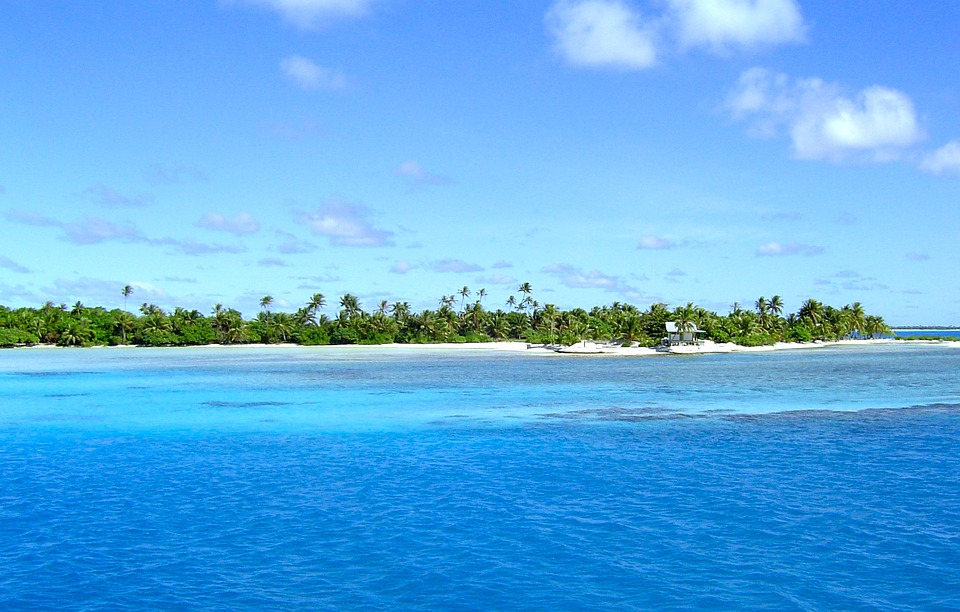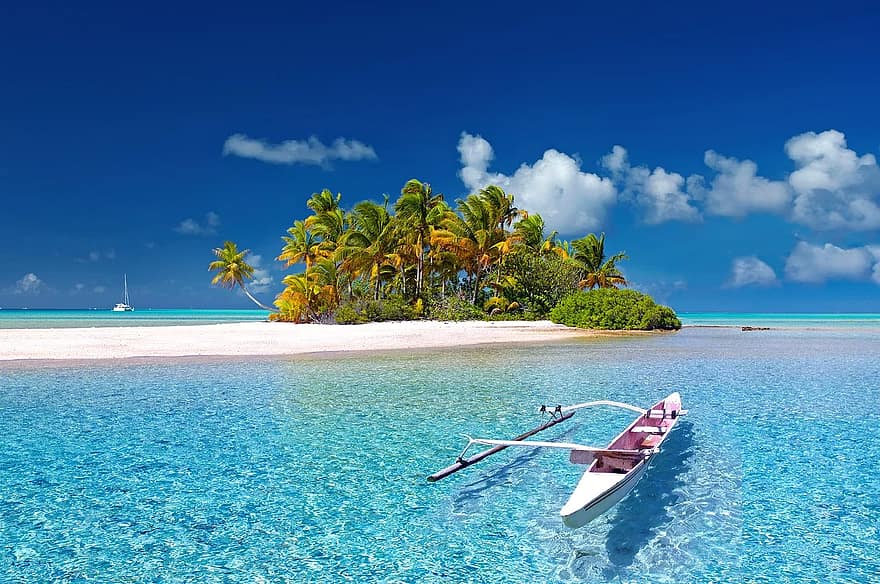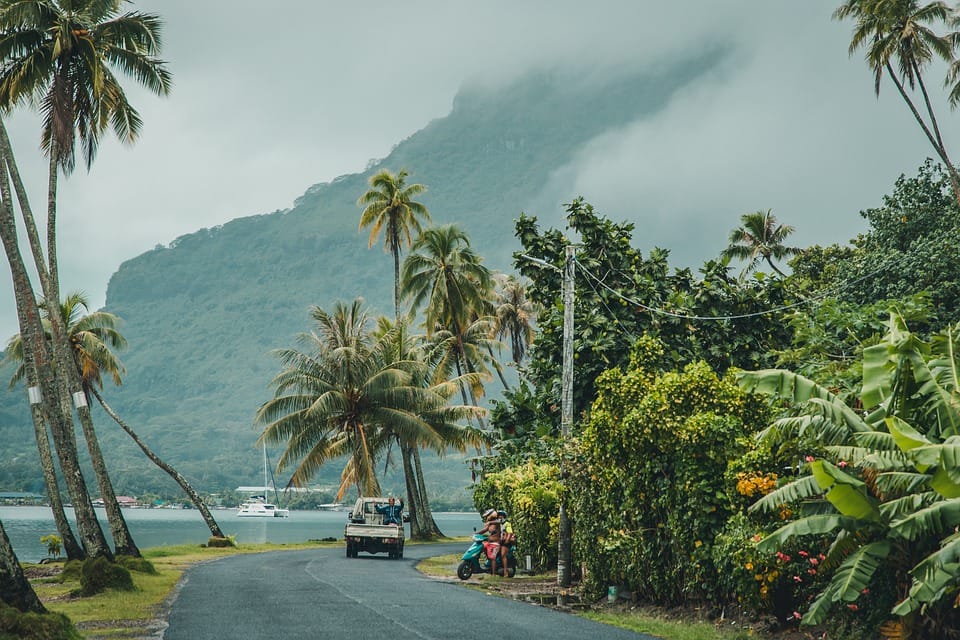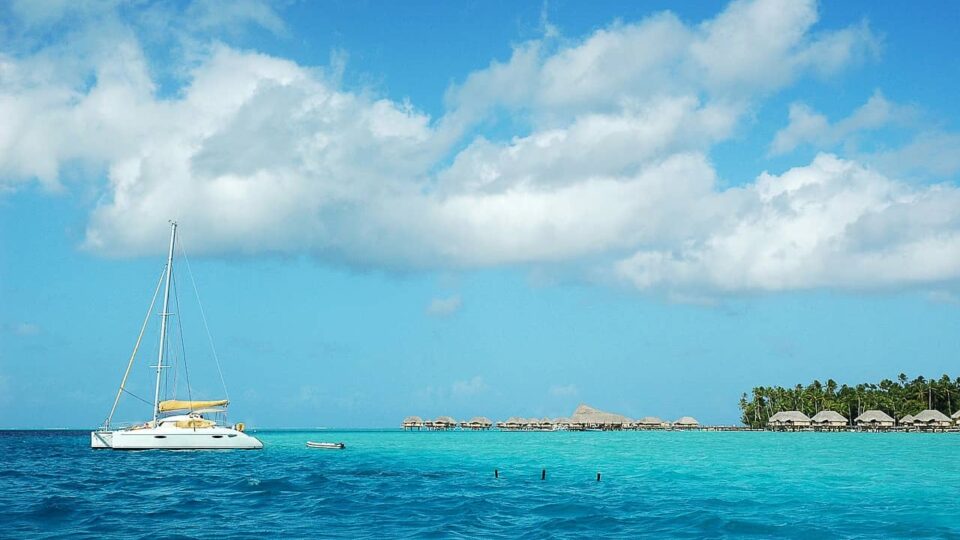Is French Polynesia Safe?
Jagged mountain peaks, turquoise lagoons, bright pearls, and dense jungles are few of the attractions in French Polynesia, usually simply called ‘Tahiti’. (As it is, Tahiti is just one of the 118 resplendent islands that constitute French Polynesia).
Imagine a trip down to French Polynesia, and you perhaps picture snoozing under a palm tree or swimming in clear seas, but there is so much to engage in here- like exploring a brisk market, learning a local dance, or browsing ancient temples. As pleasant as a holiday trip to French Polynesia is, safety should be considered.
>>Also Read: Best Things to Do in French Polynesia
General Safety
The South Pacific islands are a top destination for lots of visitors from as far as Europe. The place is the perfect holiday getaway and the ultimate destination to experience the South Pacific. French Polynesia is generally safe for travelers, but like every other place in the world, staying cautious keeps one from trouble.
Industrial disputes and strikes can lead to unrest. This, no doubt, disrupts essential services like transport connections, and sometimes protests can turn violent. That is why you should avoid too many public gatherings when you can.
Furthermore, the crime rate in the region is low. But drink spiking and theft are common crimes here. Your belongings should be close enough to you, especially in crowded spots. Also, do not leave food or drink attended as someone might be watching to target you.
Natural disasters are not uncommon. Watch out for cyclones, tsunamis, and earthquakes stories in the news, and you can check with the French High Commission in French Polynesia for real-time updates. There is a phone hotline to reach in major emergencies. Your accommodation provider or tour operator can also provide prompt advice.
Bear in mind that the cyclone season is from November to April, and tropical storms may concurrently occur at any time. Understand and follow the cyclone alert system to be safe. In addition, a tsunami can arrive within minutes of an earthquake or a tremor. So, understand the warning signs and quickly move to high ground.

Health
In April and July 2019, local authorities declared a dengue type epidemic on the island of Tahiti. Bora Bora and other islands were also affected. Be mindful of Filariasis and chikungunya that are also insect-borne diseases. To protect yourself, make sure that your accommodation is insect-proof. But it is better to use an insect repellent too. Do not forget that when shopping for your travel.
Leptospirosis also occurs here so wear closed-toed shoes when walking. Avoid contact with muddy water or rivers, not t contract waterborne diseases, and store your food in properly sealed containers. Do not forget that influenza, scabies, and conjunctivitis are also common infections in French Polynesia.
Traveling to this side of the Pacific requires extra attention health-wise as with any other foreign country you are preparing to go. As long as you take the necessary health precautions, you won’t fall sick. You are also expected to observe changes in your body when you get to the islands. Early detection of illness is important. Immediately attend to the changes like itchiness, fever, and skin wounds. Tap water is safe for drinking but boils your water. Watch what you eat too, and avoid undercooked or raw food. What is more, medical facilities are good but basic in some areas. So, research on the health infrastructure of the island you will be staying in. And it will be great to have travel insurance, especially the one that covers your medical evacuation and condition.
Local Laws
Understand the local French Polynesia laws. The place is one of France’s overseas territories; hence, the application of French and local laws. Do not carry or use illegal substances as you could face imprisonment for having even small quantities. You could possibly be fined too. Regarding dressing, only tourist areas are not conservative.
Civil Unrest and Political Tension
Protests and events that attract large groups of people can escalate quickly. Actions like industrial disputes and strikes too can turn violent, and they can inhibit tourists’ vacation plans. International and domestic flights and local transport are known to be disrupted at such times. But if there is a strike, check your flights before traveling. Ask your tour operator if the development can hamper tourist services and follow every instruction from local authorities.
Crime Rate
You will most likely not be a victim of any violent crime as the rate of such crime is low. Regardless, be careful when drinking outside. Drink spiking is a thing here. Then, keep your valuables close to you and do not accept food, gum, drinks, or cigarettes from strangers.
Swimming
You will love swimming in a stunning place like French Polynesia. However, only a few beaches are patrolled. Follow warning signs and obey lifeguards; and local authorities’ advice. When you see a red flag, then swimming is prohibited.

Tours and Adventure Activities
Tour operators and transport do not often follow maintenance and safety standards. This includes fun activities like snorkeling and scuba diving. But if you still want to plan a tour, check all the items that your travel insurance cover. Then ask and insist on minimum safety requirements and do not forget to always use available safety gear like seatbelts or jackets. In the case that proper safety gears are not available, there is often the option of using another provider.
Climate and Natural Disasters
As you already know, French Polynesia experiences severe weather conditions like tsunamis, earthquakes, and cyclones. Fortunately, the High Commission of France in the area has procedures for natural disasters. Constantly check weather reports during your stay and be prepared to change your plans if it is necessary. That is why you will hardly go wrong when you draw a flexible itinerary.
In the occurrence of a natural disaster, please follow the below steps:
- get your passport in a safe, waterproof place
- observe the local media closely
- closely observe emergency resources like the Global Disaster and Coordination System
- strictly obey the advice of authorities
- stay in touch with family and friends
- check with your operator if tourist services at your destination are affected
Cyclones
Cyclone season is November to April, but tropical storms and cyclones can happen any time of the year. Severe weather can cause landslides, flooding, breaks in essential services, and disruptions to infrastructure. Meanwhile, the direction and structure of tropical cyclones can change with minimal warning.
In the occurrence of a severe tropical storm or cyclone:
- You may be stranded where you are
- Flights could be suspended or delayed
- The available flights may fully be booked quickly
- Ports may be closed
- An inadequate shelter may be available
Bear in mind that French Polynesia has a cyclone alert system with six levels:
- Yellow: potential activity in the following 72 hours –observe weather bulletins and forecasts
- Orange: potential cyclone activity in the following 48 hours – be ready for a cyclone
- Red: the cyclone is close at hand- in the following 12 to 48 hours – protect yourself and remain indoors
- Red: in the cyclone – protect yourself and remain indoors
- Purple: safeguard phase – risks and damages (facilities etc.) are being assessed – stay alert
- Green: end of a cyclone alert

Earthquakes
Earthquakes seldom happen. Check with your hotel or host about local protocols and what to do during an earthquake.
In the occurrence of an earthquake:
- Consider tsunami risks
- Keep tabs on advanced resources like the United States Geological Survey
After an earthquake:
- Be prepared for aftershocks
- Expect changes and delays to your travel plans
- Ask your tour operators and travel agent to confirm accommodation bookings and travel services
Tsunamis
Stay alert for warnings because tsunamis may occur. A typical tsunami can occur within the minutes of an earthquake or tremor. The U.S Tsunami Warning System will help you.
French Polynesia has two types of evacuation:
- Immediate- for a Tsunami from Tonga that could come in an hour
- Staged – for a Tsunami from Alaska or South America which could come in eight hours
If you are close to the coast, immediately move to high ground if advised by authorities or if you:
- Feel a strong earthquake that makes standing up difficult
- Feel a light, rolling earthquake that lasts more than a minute or less.
- See a quick rise or fall in sea level
- Hear deafening and strange noise from the sea
Is French Polynesia Safe? – Summary
French Polynesia is an astounding destination for nature lovers and all-round vacationers. French Polynesia is relatively safe even though you are still required to follow safety standards. While muggings and other violent crimes are very rare, natural factors appear to pose more security concerns.
Observe basic hygiene and keep abreast of local weather news while in French Polynesia. In fact, do not wait for official warnings like sirens or alarms before making safety moves. Its pristine beaches, teeming reefs, and warm hospitality, among other things, make French Polynesia the quintessential Pacific luxury resort no adventure-seeking tourist should pass on.
